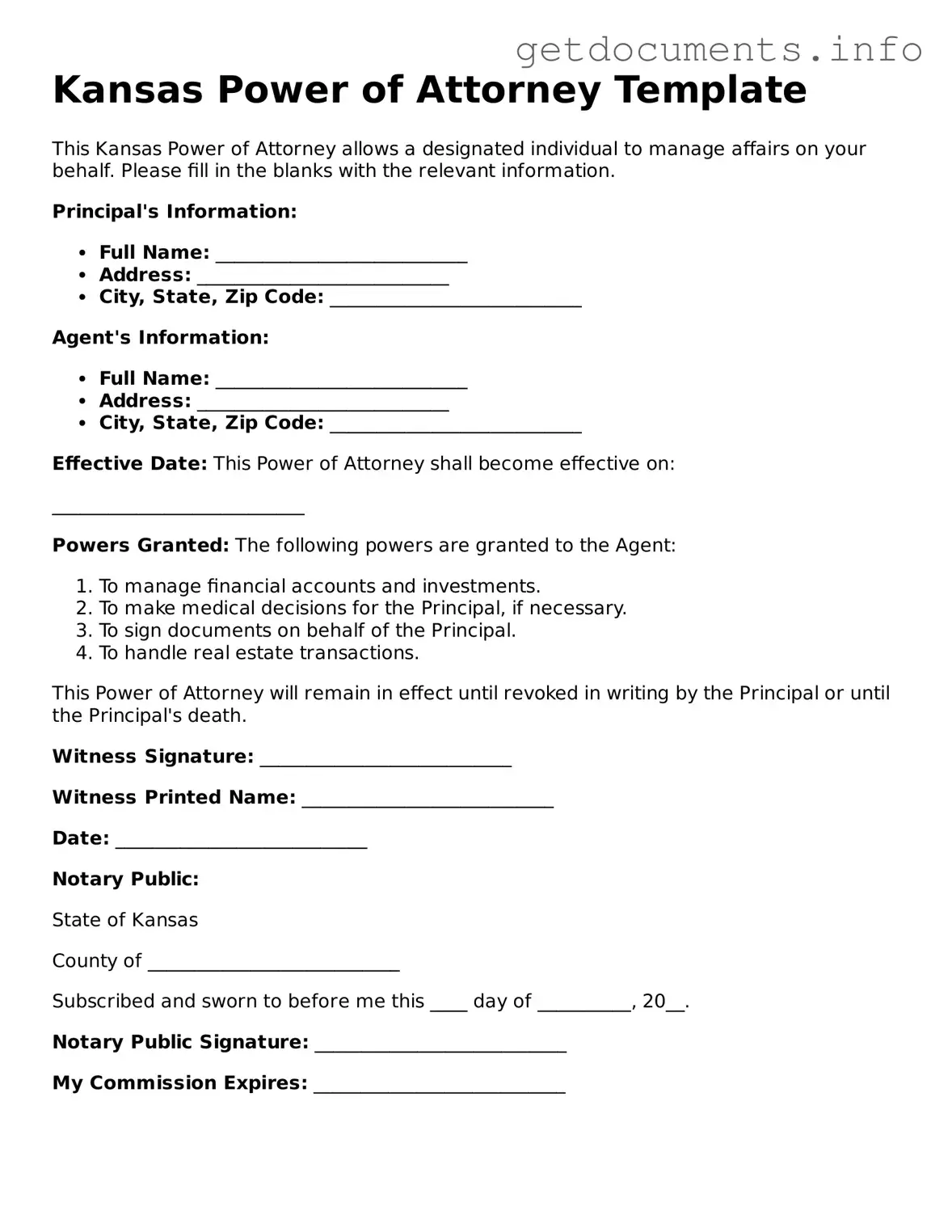Free Power of Attorney Template for Kansas
A Kansas Power of Attorney form is a legal document that allows an individual to designate another person to act on their behalf in financial or legal matters. This form provides the appointed agent with the authority to make decisions and handle affairs as specified by the principal. To ensure your interests are protected, consider filling out the Kansas Power of Attorney form by clicking the button below.
Access Power of Attorney Editor

Free Power of Attorney Template for Kansas
Access Power of Attorney Editor
Got places to be? Complete the form fast
Fill out Power of Attorney online and avoid printing or scanning.
Access Power of Attorney Editor
or
⇩ PDF File
